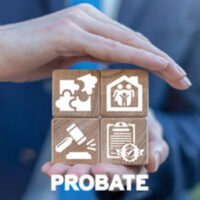Preparing An Estate Inventory For Probate

You love your family, but you would not want to drop everything and prepare a family member’s tax returns, without that family member’s help, during an already stressful time in your life, when it wasn’t even tax season. That is the position that people who die without an estate plan put their family members in. An estate cannot settle, and the heirs cannot receive their inheritance, unless the personal representative of the estate has submitted an estate inventory to the court. An estate inventory is a detailed list of all the assets that the decedent owned and the debts the decedent owed at the time of his or her death. If you are in the unenviable position of being listed in a relative’s will as personal representative of the relative’s estate, when you did not request this honor, it is normal to feel overwhelmed, but remember that you have the right to hire a lawyer with experience in matters of probate to represent you in probate court. An Orlando probate lawyer can help you navigate the estate inventory process and other aspects of probate.
What Is Estate Inventory, and How Do You Accomplish It?
Your duties as personal representative of a deceased person’s estate officially begin when the court appoints you as personal representative. To get the court to appoint you as personal representative, you can submit the decedent’s will that names you as personal representative. If the decedent died without a will, then you can simply petition the court to open the estate and name you as personal representative. Once this happens, you have 60 days to submit an estate inventory to the probate court.
The estate inventory is a document that lists all the property belonging to the decedent at the time of his or her death; this property can be used to pay creditors during probate and will be distributed to the beneficiaries of the will when the estate settles. It may include the following items:
- Real estate properties
- Bank accounts
- Investment accounts such as stocks, bonds, and CDs
- Retirement accounts such as IRAs, Roth IRAs, and 401(k) accounts
- Insurance policies, insurance life insurance, survivor benefits of long-term care insurance policies, and annuities
- Business interests owned by the decedent
- Money owed to the decedent, including unpaid wages and outstanding loans
If the decedent gave you legacy access to his or her smartphone, your task will be much easier than estate inventory was in the days of offline banking. Meanwhile, the situation can get more complicated if the decedent owned property in more than one state. If there are identifiable challenges to identifying all the property within the 60-day timeframe, you can ask the court to extend the deadline.
Contact Gierach and Gierach About Estate Inventory
A probate lawyer can help you prepare the inventory of the decedent’s estate within the deadline set by the court and can assist with other aspects of probate. Contact Gierach and Gierach, P.A. in Orlando, Florida to discuss your case.
Source:
yahoo.com/video/prepare-estate-inventory-probate-140015086.html
